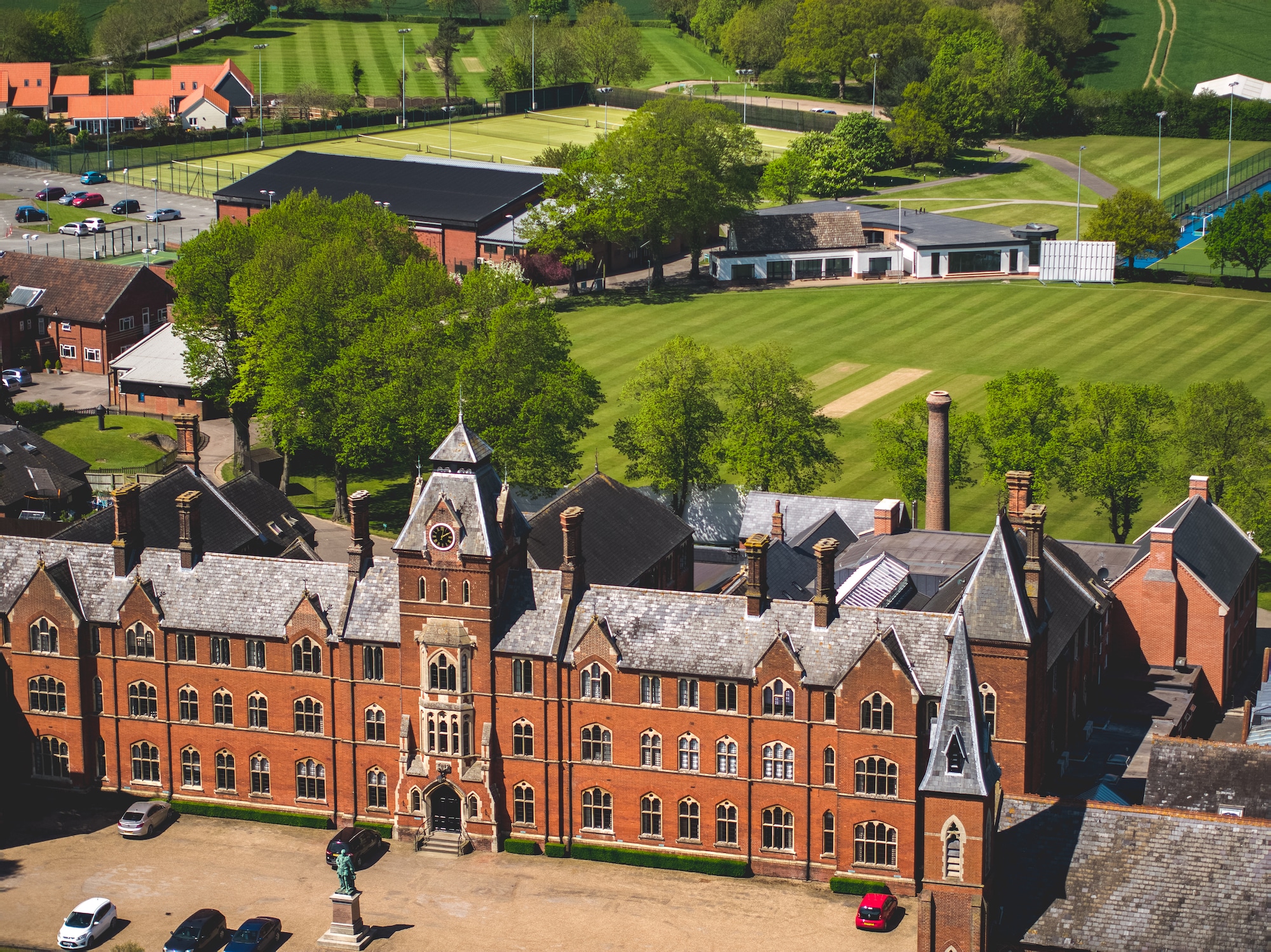Who we are
The School, which includes the Senior and Prep Schools, is aware of its obligations under the General Data Protection Regulation (GDPR) and is committed to processing your data securely and transparently. This privacy notice sets out, in line with GDPR, the types of data that we hold on parents, pupils and alumni. It also sets out how we use that information, how long we keep it for and other relevant information about your data.
This notice applies to prospective, current and former parents and pupils.
What this Privacy Notice is for
This policy is intended to provide information about how the school will use (or “process”) personal data about: current, past and prospective pupils (“pupils”); their parents, carers or guardians (referred to as “parents”).
This information is provided because Data Protection Law gives individuals rights to understand how their data is used. Parents, pupils, alumni and staff are all encouraged to read this Privacy Notice and understand the school’s obligations to its entire community.
This Privacy Notice applies alongside any other information the school may provide about a particular use of personal data, for example when collecting data via an online or paper form.
This Privacy Notice also applies in addition to the school’s other relevant terms and conditions and policies, including:
- any contract between the school and its parents or pupils;
- the school’s policy on taking, storing and using images of children;
- the school’s CCTV and/or biometrics policy;
- the school’s retention of records policy;
- the school’s safeguarding, pastoral, or health and safety policies, including as to how concerns or incidents are recorded; and the school’s usage of IT policies.
Responsibility for Data Protection
- The School is a Data Controller, meaning that it determines the processes to be used when using your personal data. Our contact details are as follows: Framlingham College & Prep School, College Road, Framlingham, Suffolk, IP13 9EY..
- The School has a designated GDPR Administrator (details can be obtained from the Bursars office), in order to ensure that all personal data is processed in compliance with this Privacy Notice and Data Protection law and oversee requests and enquiries concerning the school’s uses of personal data.
Data Protection Principles
In relation to your personal data, we will:
- process it fairly, lawfully and in a clear, transparent way
- collect your data only for reasons that we find proper
- only use it in the way that we have told you about
- ensure it is correct and up to date
- keep your data for only as long as we need it
- process it in a way that ensures it will not be used for anything that you are not aware of or have consented to (as appropriate), lost or destroyed.
Why the School needs to process personal data
In order to carry out its ordinary duties to pupils and parents, the school needs to process a wide range of personal data about individuals (including current, past and prospective, pupils or parents) as part of its daily operation.
Some of this activity the school will need to carry out in order to fulfil its legal rights, duties or obligations – including those under a contract.
Other uses of personal data will be made in accordance with the school’s legitimate interests, or the legitimate interests of another, provided that these are not outweighed by the impact on individuals and provided it does not involve special or sensitive types of data.
The school expects that the following uses will fall within that category of its (or its community’s) “legitimate interests”:
- For the purposes of pupil selection (and to confirm the identity of prospective pupils and their parents);
- To provide education services, including musical education, physical training or spiritual development, career services, and extra-curricular activities to pupils, and monitoring pupils’ progress and educational needs;
- Maintaining relationships with alumni and the school community, including direct marketing or fundraising activity;
- For the purposes of donor due diligence, and to confirm the identity of prospective donors and their background and relevant interests;
- To enable relevant authorities to monitor the school’s performance and to intervene or assist with incidents as appropriate;
- To give and receive information and references about past, current and prospective pupils, including relating to outstanding fees or payment history, to/from any educational institution that the pupil attended or where it is proposed they attend; and to provide references to potential employers of past pupils;
- To enable pupils to take part in national or other assessments, and to publish the results of public examinations or other achievements of pupils of the school;
- To safeguard pupils’ welfare and provide appropriate pastoral care;
- To monitor (as appropriate) use of the school’s IT and communications systems in accordance with the school’s policies;
- To make use of photographic images of pupils in school publications, on the school website and (where appropriate) on the school’s social media channels in accordance with the school’s policy on taking, storing and using images of children;
- For security purposes, including CCTV in accordance with the school’s CCTV policy;
- To carry out or cooperate with any school or external complaints, disciplinary or investigation process; and
- Where otherwise reasonably necessary for the school’s purposes, including to obtain appropriate professional advice and insurance for the school.
In addition, the school will on occasion need to process special category personal data (concerning health, ethnicity, religion, biometrics or sexual life) in accordance with rights or duties imposed on it by law, including as regards safeguarding, or from time to time by explicit consent where required. These reasons will include:
- To safeguard pupils’ welfare and provide appropriate pastoral (and where necessary, medical) care, and to take appropriate action in the event of an emergency, incident or accident, including by disclosing details of an individual’s medical condition or other relevant information where it is in the individual’s interests to do so: for example for medical advice, for social protection, safeguarding, and cooperation with police or social services, for insurance purposes or to caterers or organisers of school trips who need to be made aware of dietary or medical needs;
- To provide educational services in the context of any special educational needs of a pupil;
- To provide spiritual education in the context of any religious beliefs;
- To run any of its systems that operate on biometric data, such as for security and other forms of pupil identification (lockers, lunch etc.);
- As part of any school or external complaints, disciplinary or investigation process that involves such data, for example if there are SEN, health or safeguarding elements; or
- For legal and regulatory purposes (for example child protection, diversity monitoring and health and safety) and to comply with its legal obligations and duties of care.
Types of personal data processed by the School
This will include by way of example:
- names, addresses, telephone numbers, e-mail addresses and other contact details;
- car details (about those who use our car parking facilities);
- bank details and other financial information, e.g. about parents who pay fees to the school;
- past, present and prospective pupils’ academic, disciplinary, admissions and attendance records (including information about any special needs), and examination scripts and marks;
- where appropriate, information about individuals’ health and welfare, and contact details for their next of kin;
- references given or received by the school about pupils, and relevant information provided by previous educational establishments and/or other professionals or organisations working with pupils;
- correspondence with and concerning pupils and parents past and present; and
- images of pupils (and occasionally other individuals) engaging in school activities, and images captured by the school’s CCTV system (in accordance with the school’s policy on taking, storing and using images of children).
How the School collects data
Generally, the school receives personal data from the individual directly (including, in the case of pupils, from their parents). This may be via a form, or simply in the ordinary course of interaction or communication (such as email or written assessments).
However, in some cases personal data will be supplied by third parties (for example another school, or other professionals or authorities working with that individual); or collected from publicly available sources.
Who has access to the personal data and who the School shares it with
The School may receive requests from third parties to disclose personal data it holds about pupils, their parents or guardians. The School will not generally disclose information unless the individual has given their consent or one of the specific exemptions under the Data Protection Act applies. However the School does intend to disclose such data as is necessary to third parties for the following purposes:
- To give a confidential reference relating to a pupil to any educational institution which it is proposed that the pupil may attend.
- To give information relating to outstanding fees or payment history to any educational institution which it is proposed that the pupil may attend.
- To publish the results of public examinations or other achievements of pupils of the School.
- To disclose details of a pupil’s medical condition where it is in the pupil’s interests to do so, for example for medical advice, insurance purposes or to organisers of school trips.
- For fundraising, marketing or promotional purposes and to maintain relationships with pupils and parents of the School, including transferring information to the Society of Old Framlinghamians, FramSoc and Friends of Framlingham and any other association society or club set up for the purpose of establishing or maintaining contact with pupils and parents or for fundraising, marketing or promotional purposes.
Where the School receives a disclosure request from a third party it will take reasonable steps to verify the identity of that third party before making any disclosure.
Occasionally, the school will need to share personal information relating to its community with third parties, such as:
- professional advisers (e.g. lawyers, insurers);
- government authorities (e.g. DfE, police or the local authority); and
- appropriate regulatory bodies e.g. the Independent Schools Inspectorate, the Charity Commission, the Information Commissioner.
For the most part, personal data collected by the school will remain within the school and will be processed by appropriate individuals only in accordance with access protocols (i.e. on a ‘need to know’ basis). Particularly strict rules of access apply in the context of:
- medical records, which are held and accessed only by the school doctor and appropriate medical staff, or otherwise in accordance with express consent;
- pastoral or safeguarding files.
However, a certain amount of any SEN pupil’s relevant information will need to be provided to staff more widely in the context of providing the necessary care and education that the pupil requires.
Pupils and parents are reminded that the school is under duties imposed by law and statutory guidance (including Keeping Children Safe in Education) to record or report incidents and concerns that arise or are reported to it, in some cases regardless of whether they are proven, if they meet a certain threshold of seriousness in their nature or regularity. This is likely to include file notes on personnel or safeguarding files, and in some cases referrals to relevant authorities such as the LADO or police. For further information about this, please view the school’s Safeguarding Policy.
Finally, in accordance with Data Protection Law, some of the school’s processing activity is carried out on its behalf by third parties, such as IT systems, web developers or cloud storage providers. This is always subject to contractual assurances that personal data will be kept securely and only in accordance with the school’s specific directions.
- iSAMS (school database)
- My School Portal [MSP] (parent information portal)
- Patient Tracker (medical database)
- My Concern (Safeguarding details)
- GL Assessment (testing data)
- Access / ThankQ (alumni database)
- Examinations boards
- The Web Kitchen (school website provider)
How long we keep personal data
The school will retain personal data securely and only in line with how long it is necessary to keep for a legitimate and lawful reason. Typically, the legal recommendation for how long to keep ordinary pupil files is up to 7 years following departure from the school. However, incident reports and safeguarding files will need to be kept for longer, in accordance with specific legal requirements. The Independent Inquiry into Child Sexual Abuse has directed that information regarding pupils be retained indefinitely for at least the period of its deliberations to assist in investigations into allegations of historic abuse.
A limited and reasonable amount of information will be kept for historical archiving purposes. We will also retain information to enable us to assist ex pupils with future employment references which tend to seek information from the past in employment involving a safeguarding aspect. Where you have requested we no longer keep in touch with you, we will need to keep a record of the fact in order to fulfil your wishes (called a “suppression record”).
If you have any specific queries about how our retention policy is applied or wish to request that personal data that you no longer believe to be relevant is considered for erasure, please contact the GDPR Administrator. However, please bear in mind that the school will often have lawful and necessary reasons to hold on to some personal data even following such request.
Keeping in touch and supporting the School
The school will use the contact details of parents, alumni and other members of the school community to keep them updated about the activities of the school, or alumni and parent events of interest, including by sending updates and newsletters, by email and by post. Unless the relevant individual objects, the school will also:
- Share personal data about parents and/or alumni, as appropriate, with organisations set up to help establish and maintain relationships with the school community, such as the Society of Old Framlinghamians, FramSoc, Friends of Framlingham.;
- Contact parents and/or alumni by post and email in order to promote and raise funds for the school;
- Collect information from publicly available sources about parents’ and former pupils’ occupation and activities, in order to offer more targeted invitations to participate in relevant opportunities that may arise, for example work experience for pupils or school hosted careers or business seminars;
- Should you wish to limit or object to any such use, or would like further information about them, please contact the GDPR Administrator in writing. You always have the right to withdraw consent, where given, or otherwise object to direct marketing or fundraising. However, the school is nonetheless likely to retain some of your details (not least to ensure that no more communications are sent to that particular address, email or telephone number).
Your rights
Rights of access, etc
Individuals have various rights under Data Protection Law to access and understand personal data about them held by the school, and in some cases ask for it to be erased or amended or have it transferred to others, or for the school to stop processing it – but subject to certain exemptions and limitations.
Any individual wishing to access or amend their personal data or wishing it to be transferred to another person or organisation, or who has some other objection to how their personal data is used, should put their request in writing to the Compliance Officer.
The school will endeavour to respond to any such written requests as soon as is reasonably practicable and in any event within statutory time-limits (which is one month in the case of requests for access to information).
The school will be better able to respond quickly to smaller, targeted requests for information. If the request for information is manifestly excessive or similar to previous requests, the school may ask you to reconsider or require a proportionate fee (but only where Data Protection Law allows it).
Requests that cannot be fulfilled
You should be aware that the right of access is limited to your own personal data, and certain data is exempt from the right of access. This will include information which identifies other individuals (and parents need to be aware this may include their own children, in certain limited situations – please see further below), or information which is subject to legal privilege (for example legal advice given to or sought by the school, or documents prepared in connection with a legal action).
The school is also not required to disclose any pupil examination scripts (or other information consisting solely of pupil test answers), provide examination or other test marks ahead of any ordinary publication, nor share any confidential reference given by the school itself for the purposes of the education, training or employment of any individual.
You may have heard of the “right to be forgotten”. However, we will sometimes have compelling reasons to refuse specific requests to amend, delete or stop processing your (or your child’s) personal data: for example, a legal requirement, or where it falls within a legitimate interest identified in this Privacy Notice. All such requests will be considered on their own merits.
Pupil requests
Pupils may make subject access requests for their own personal data, provided that, in the reasonable opinion of the school, they have sufficient maturity to understand the request they are making (see section Whose Rights? below). A pupil of any age may ask a parent or other representative to make a subject access request on his/her behalf.
Indeed, while a person with parental responsibility will generally be entitled to make a subject access request on behalf of younger pupils, the law still considers the information in question to be the child’s: for older pupils, the parent making the request may need to evidence their child’s authority for the specific request.
Pupils at the Senior School are generally assumed to have this level of maturity, although this will depend on both the child and the personal data requested, including any relevant circumstances at home. Prep School pupils may however be sufficiently mature to have a say in this decision, depending on the child and the circumstances.
Parental requests, etc.
It should be clearly understood that the rules on subject access are not the sole basis on which information requests are handled. Parents may not have a statutory right to information, but they and others will often have a legitimate interest or expectation in receiving certain information about pupils without their consent. The school may consider there are lawful grounds for sharing with or without reference to that pupil.
Parents will in general receive educational and pastoral updates about their children. Where parents are separated, the school will in most cases aim to provide the same information to each person with parental responsibility but may need to factor in all the circumstances including the express wishes of the child.
All information requests from, on behalf of, or concerning pupils – whether made under subject access or simply as an incidental request – will therefore be considered on a case by case basis.
Consent
Where the school is relying on consent as a means to process personal data, any person may withdraw this consent at any time (subject to similar age considerations as above). Examples where we may rely on consent are: certain types of uses of images and certain types of fundraising activity. Please be aware however that the school may not be relying on consent but have another lawful reason to process the personal data in question even without your consent. That reason will usually have been asserted under this Privacy Notice or may otherwise exist under some form of contract or agreement with the individual (e.g. a parent contract, or because a purchase of goods, services or membership of an organisation such as a parents’ association has been requested).
Whose rights?
The rights under Data Protection Law belong to the individual to whom the data relates. However, the school will often rely on parental authority or notice for the necessary ways it processes personal data relating to pupils – for example, under the parent contract, or via a form. Parents and pupils should be aware that this is not necessarily the same as the school relying on strict consent (see section on Consent above).
Where consent is required, it may in some cases be necessary or appropriate – given the nature of the data processing in question, and the pupil’s age and understanding – to seek the pupil’s consent. Parents should be aware that in such situations they may not be consulted, depending on the interests of the child, the parents’ rights at law or under their contract, and all the circumstances.
In general, the school will assume that pupils’ consent is not required for ordinary disclosure of their personal data to their parents, e.g. for the purposes of keeping parents informed about the pupil’s activities, progress and behaviour, and in the interests of the pupil’s welfare. That is unless, in the school’s opinion, there is a good reason to do otherwise.
However, where a pupil seeks to raise concerns confidentially with a member of staff and expressly withholds their agreement to their personal data being disclosed to their parents, the school may be under an obligation to maintain confidentiality unless, in the school’s opinion, there is a good reason to do otherwise; for example where the school believes disclosure will be in the best interests of the pupil or other pupils, or if required by law.
Pupils are required to respect the personal data and privacy of others, and to comply with the school’s relevant policies and school rules.
Data accuracy and security
The school will endeavour to ensure that all personal data held in relation to an individual is as up to date and accurate as possible. Individuals must please notify the GDPR Administrator of any significant changes to important information, such as contact details, held about them.
An individual has the right to request that any out-of-date, irrelevant or inaccurate information about them is erased or corrected (subject to certain exemptions and limitations under Data Protection Law). See above for details of why the school may need to process your data, of who you may contact if you disagree.
The school will take appropriate technical and organisational steps to ensure the security of personal data about individuals, including policies around use of technology and devices, and access to school systems. Staff and governors will be made aware of this policy and their duties under Data Protection Law and receive relevant training.
This Policy
The school will update this Privacy Notice from time to time. Any substantial changes that affect your rights will be provided to you directly as far as is reasonably practicable.
Queries and Complaints
Any comments or queries on this policy should be directed to the GDPR Administrator Framlingham College, College Road, Framlingham, Suffolk, IP13 9EY, Tel: 01728 723789.
If an individual believes that the school has not complied with this policy or acted otherwise than in accordance with Data Protection Law, they should utilise the school Complaints Procedure and should also notify the GDPR Administrator. You can also make a referral to or lodge a complaint with the Information Commissioner’s Office (ICO), although the ICO recommends that steps are taken to resolve the matter with the school before involving the regulator.
January 2025





